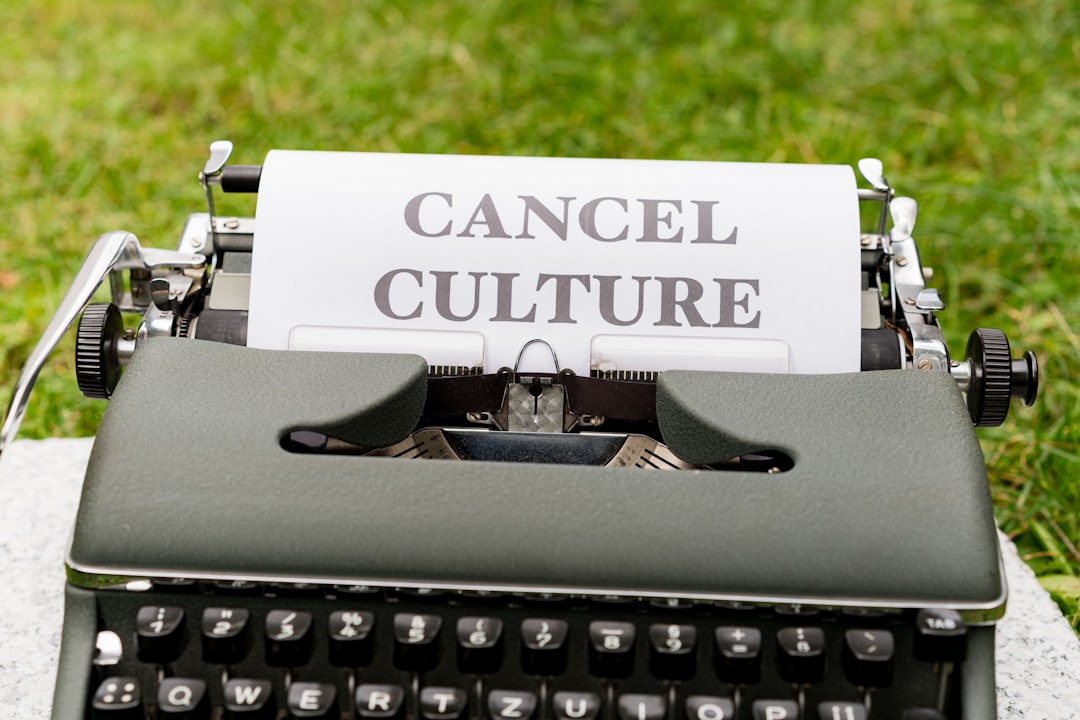
Silencing Dissent: The Dangers of Cancel Culture’s Moral Tyranny
In a world where the voices of dissent are increasingly drowned out by a cacophony of outrage, one must ponder: have we traded our freedom of speech for a gilded cage of moral tyranny? The phenomenon of cancel culture, which has rapidly escalated into a full-blown societal epidemic, raises critical questions about the limits of acceptable discourse and the implications of silencing dissent.
The Dangers of Cancel Culture
Cancel culture, at its core, thrives on the idea that any deviation from a prescribed set of beliefs or behaviors warrants public shaming, ostracization, or worse. The irony here is palpable; in the pursuit of a “more inclusive society,” the very foundations of dialogue and debate are being systematically dismantled. One could argue that this contemporary moral policing is a direct affront to the principles of free expression that have long been heralded as cornerstones of democratic societies.
Consider the case of a prominent public figure who dared to voice an unpopular opinion. The backlash was swift and merciless. Social media platforms became virtual lynch mobs, demanding retribution, often with little regard for context or nuance. The result? A chilling effect on anyone contemplating stepping outside the ideological lines drawn by the self-appointed arbiters of morality. In this brave new world, it seems that the only safe stance is to adopt the prevailing orthodoxy—lest one be “canceled.”
The Ripple Effect on Society
The implications of this moral tyranny extend far beyond the individual. Cancel culture creates a culture of fear, stifling innovation and creativity. How can one think outside the box when the box itself is constantly shifting, defined by the ever-changing whims of the mob? The stifling of dissent not only hampers personal growth but also obstructs the progress of society as a whole. After all, history is replete with instances where dissenting voices have paved the way for meaningful change.
Take, for instance, the scientific community. The very essence of scientific inquiry is rooted in questioning and challenging established norms. Yet, in an age where dissent is vilified, researchers may hesitate to explore controversial theories for fear of losing funding or credibility. As a result, we risk stagnation in fields that thrive on debate and discussion.
Counterarguments and the Case for Discourse
Of course, proponents of cancel culture argue that it serves as a mechanism for accountability, especially for marginalized communities that have long been silenced. They contend that it offers a platform for the voiceless and challenges systemic injustices. While there is merit in advocating for accountability, the tactic of silencing dissent undermines the very progress it seeks to achieve.
The key lies in fostering an environment where dissent is not only tolerated but encouraged. Engaging in civil discourse, even with those whose opinions we vehemently oppose, is essential for a healthy society. It is through debate that we hone our arguments, sharpen our critical thinking skills, and ultimately arrive at a more nuanced understanding of complex issues.
The Role of the Media and Technology
Interestingly, the media and technology play a significant role in the perpetuation of cancel culture. Social media, with its algorithms favoring sensationalism over substance, has transformed public discourse into a battleground where the loudest voices often drown out those with more measured perspectives. In this digital age, the pressure to conform is exacerbated, as people fear being branded as “problematic” for expressing their views.
Moreover, traditional media outlets have not shied away from amplifying cancel culture narratives. In many instances, they have become complicit in the moral outrage, prioritizing clicks over thoughtful analysis. This creates an echo chamber where dissenting opinions are not just ignored but actively silenced.
Conclusion: Embracing Dissent for a Brighter Future
In conclusion, the dangers of cancel culture and its moral tyranny cannot be overstated. As a society, we must reclaim the right to dissent, recognizing it as an essential component of progress and freedom. Instead of vilifying those who challenge our beliefs, let us engage them in conversation, debate, and, yes, even disagreement. Only then can we truly foster a culture of understanding and tolerance.
As we navigate this complex landscape, it is imperative to remember that silencing dissent does not lead to a more just society; rather, it builds walls that divide us. So, let us champion the discourse, invite the debate, and embrace the beauty of diverse opinions. After all, a society that thrives on open dialogue is far more resilient than one shackled by the chains of conformity.
Tags: opinion, editorial, current events, cancel culture, free speech, dissent, moral tyranny, social media, discourse


